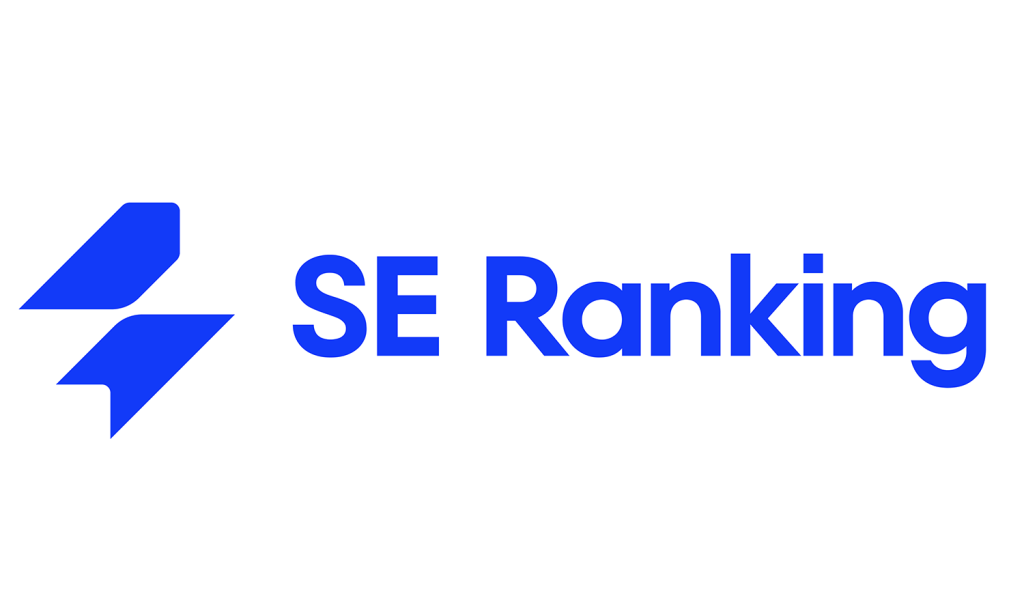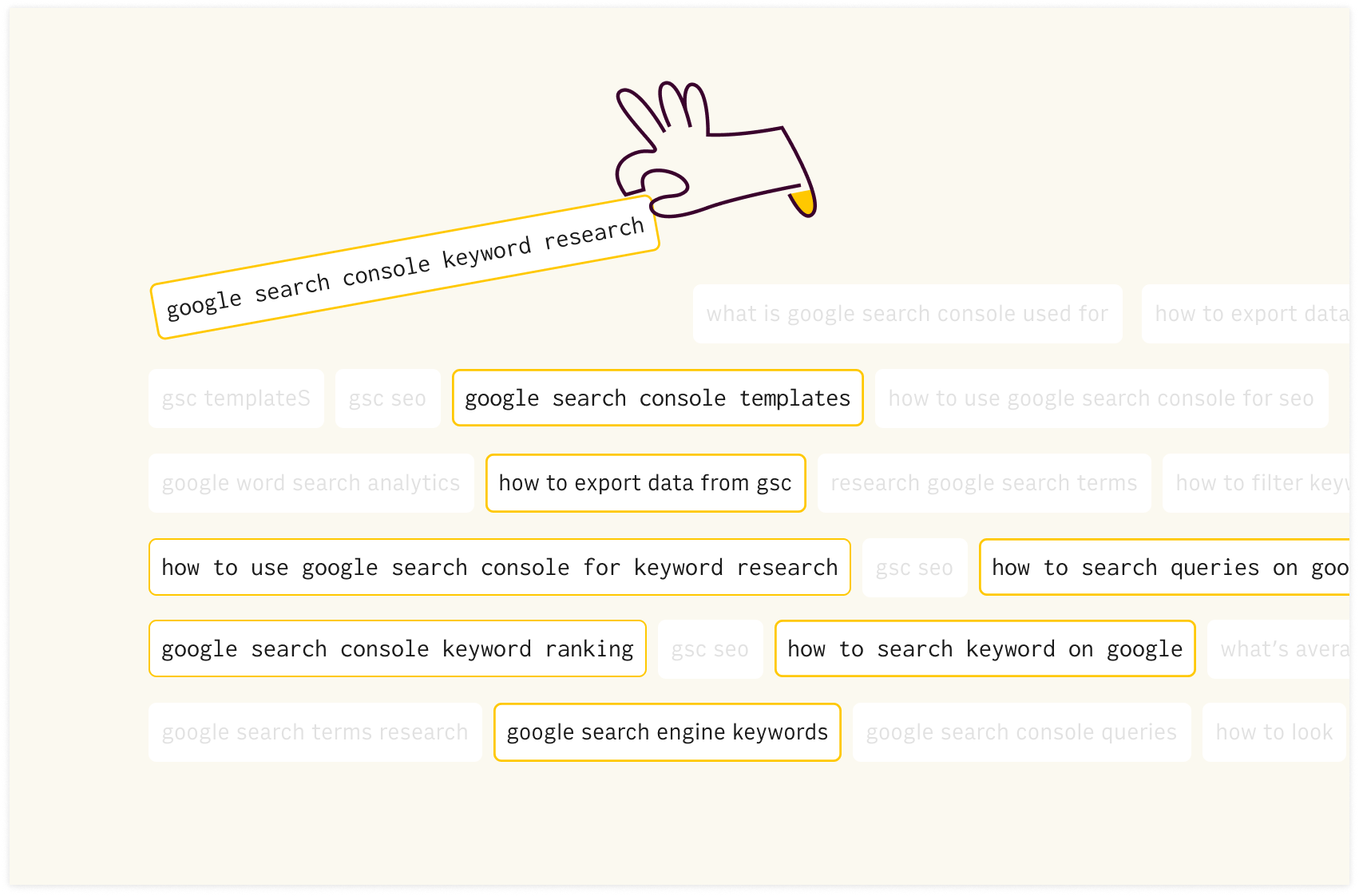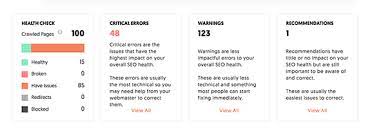The Best SEO Audit Tool for Your Website
The Best SEO Audit Tool for Your Website
When it comes to improving your website’s search engine ranking and overall performance, conducting regular SEO audits is essential. An SEO audit helps you identify areas for improvement, fix issues that may be hindering your site’s visibility, and ultimately boost your online presence. One of the most crucial aspects of conducting an SEO audit is choosing the right tool to assist you in this process.
Introducing SEMrush: Your Ultimate SEO Audit Companion
SEMrush is widely regarded as one of the best SEO audit tools available in the market today. This powerful tool offers a comprehensive suite of features that can help you analyse your website’s performance, track keywords, monitor backlinks, and much more. Here are some key reasons why SEMrush stands out as the go-to choice for many digital marketers:
- Comprehensive Site Audit: SEMrush provides a detailed analysis of your website’s on-page and technical SEO factors, highlighting issues such as broken links, duplicate content, and missing meta tags.
- Keyword Research: With SEMrush, you can uncover valuable insights into keyword trends, search volume, and competition levels to optimise your content strategy effectively.
- Backlink Analysis: The tool allows you to monitor your backlink profile, identify toxic links, and discover new link-building opportunities to enhance your site’s authority.
- Competitor Analysis: Gain a competitive edge by comparing your website’s performance with that of your competitors and identifying areas where you can outperform them.
- Customisable Reports: SEMrush offers a range of reporting options that allow you to generate customised reports tailored to your specific needs and preferences.
Why Choose SEMrush for Your SEO Audits?
In addition to its robust features and functionality, SEMrush is known for its user-friendly interface and intuitive design. Whether you are a seasoned SEO professional or a novice looking to improve your website’s visibility, SEMrush provides the tools and insights you need to succeed.
By leveraging the power of SEMrush for your SEO audits, you can gain a competitive advantage in the ever-evolving digital landscape. With actionable recommendations and real-time data at your fingertips, you can make informed decisions that drive tangible results for your online presence.
If you are serious about enhancing your website’s performance and maximising its potential in search engine results pages, consider incorporating SEMrush into your SEO toolkit. Experience the difference that this top-tier SEO audit tool can make in transforming your online visibility and driving organic traffic to your site.
Top 20 FAQs About Choosing the Best SEO Audit Tools
- How to do a proper SEO audit?
- What is the best SEO analysis tool?
- Which is the best tool for SEO audit?
- How do I do a full SEO audit?
- What is SEO audit name any 2 SEO audit tools?
- Are SEO audits worth it?
- What is the most popular SEO tool?
- How do I audit my SEO?
- Is an example of SEO audit tool?
- Which is the free SEO audit tool?
- Are SEO audit tools useful?
- What is SEO audit name any one SEO Audit Tool?
- How do I audit my website for SEO?
- What is the SEO audit tool?
- What is the name of SEO audit tool?
- How do I do an SEO audit?
- Which is the most powerful SEO tool?
- How do I audit SEO?
- Which tools would you use to conduct an SEO audit of your website?
- Which tool is best for SEO audit?
How to do a proper SEO audit?
Conducting a proper SEO audit is essential for identifying areas of improvement and optimisation on your website. To perform a thorough SEO audit, start by analysing your website’s technical aspects, such as site speed, mobile-friendliness, and URL structure. Next, delve into on-page elements like meta tags, headings, and content quality to ensure they are optimised for relevant keywords. Backlink analysis is crucial to assess the quality and quantity of inbound links pointing to your site. Additionally, evaluating your website’s performance in search engine results pages (SERPs) and monitoring key metrics like organic traffic and conversion rates are integral parts of a comprehensive SEO audit. By following a structured approach and utilising reliable tools like SEMrush or Ahrefs, you can conduct a proper SEO audit that uncovers actionable insights to enhance your website’s visibility and performance in search engines.
When it comes to determining the best SEO analysis tool, there are several factors to consider in order to make an informed decision. The ideal SEO analysis tool should offer a comprehensive range of features, including site audit capabilities, keyword research tools, backlink analysis, competitor tracking, and customisable reporting options. Many digital marketers and SEO professionals often recommend SEMrush as one of the top choices for conducting in-depth SEO analysis. With its user-friendly interface, extensive functionality, and real-time data insights, SEMrush stands out as a reliable and effective tool for enhancing website performance and driving organic traffic. Ultimately, the best SEO analysis tool is one that aligns with your specific needs and objectives, providing actionable recommendations to help you achieve your online visibility goals.
When it comes to determining the best tool for conducting an SEO audit, there are several factors to consider. While there are many reputable options available in the market, one tool that consistently stands out is SEMrush. With its comprehensive suite of features, including site audits, keyword research, backlink analysis, and competitor tracking, SEMrush offers a holistic approach to SEO auditing. Its user-friendly interface and customisable reporting make it a popular choice among digital marketers seeking to enhance their website’s performance and visibility in search engine results. Ultimately, the best tool for SEO audit will depend on your specific needs and objectives, but SEMrush is certainly a top contender worth exploring.
How do I do a full SEO audit?
To conduct a comprehensive SEO audit for your website, it is essential to follow a structured approach that covers various aspects of search engine optimisation. Start by evaluating your website’s technical performance, including factors such as site speed, mobile-friendliness, and crawlability. Next, assess your on-page SEO elements, such as meta tags, headings, and content quality. Conduct keyword research to identify relevant terms for optimisation and review your backlink profile for quality and relevance. Utilise tools like SEMrush or Ahrefs to gather data and insights for a thorough analysis. Finally, generate a detailed report outlining findings and recommendations to address any issues uncovered during the audit process. Regularly reviewing and updating your SEO strategy based on audit results is key to maintaining optimal website performance and visibility in search engine results pages.
An SEO audit is a comprehensive evaluation of a website’s performance and adherence to search engine optimisation best practices. It involves analysing various factors such as on-page SEO elements, technical issues, backlink profiles, and overall site health to identify areas for improvement. Two popular SEO audit tools that are widely used by digital marketers and website owners are SEMrush and Ahrefs. These tools provide in-depth insights into a website’s SEO performance, helping users uncover issues, track keyword rankings, monitor backlinks, and make data-driven decisions to enhance their online visibility and search engine ranking.
Are SEO audits worth it?
Undoubtedly, investing time and resources in SEO audits is unequivocally worth it for any website owner or digital marketer. Conducting regular SEO audits allows you to gain valuable insights into your website’s performance, identify areas for improvement, and address issues that may be hindering your online visibility. By uncovering and rectifying SEO deficiencies, you can enhance your site’s search engine ranking, increase organic traffic, and ultimately drive more conversions. In a digital landscape where competition is fierce and search engine algorithms are constantly evolving, prioritising SEO audits is crucial to staying ahead of the curve and maximising the effectiveness of your online presence.
When it comes to selecting the most popular SEO tool, there is a multitude of options available in the digital landscape. However, one tool that consistently stands out as a favourite among digital marketers and SEO professionals is SEMrush. Renowned for its comprehensive features, user-friendly interface, and in-depth analytical capabilities, SEMrush has earned its reputation as the go-to choice for conducting SEO audits, keyword research, backlink analysis, competitor tracking, and more. Its versatility and effectiveness make it a top contender for those seeking a powerful tool to enhance their website’s search engine visibility and performance.
How do I audit my SEO?
Auditing your SEO is a crucial step in ensuring that your website is optimised for search engines and performing at its best. To audit your SEO effectively, you can start by using a reliable SEO audit tool like SEMrush or Ahrefs. These tools can help you analyse various aspects of your website, including on-page SEO elements, backlink profile, site speed, and overall performance. Additionally, conducting keyword research to identify relevant keywords for your content and ensuring that your website’s technical aspects are in order are essential steps in auditing your SEO. Regularly monitoring and updating your SEO strategy based on the audit results will help you improve your website’s visibility and rankings in search engine results pages.
When seeking an example of an SEO audit tool, one popular choice that often comes to mind is SEMrush. SEMrush is a comprehensive and versatile tool that offers a wide range of features to help users conduct in-depth SEO audits for their websites. From analysing on-page and technical SEO factors to providing insights on keyword research, backlink analysis, and competitor comparisons, SEMrush stands out as a reliable solution for businesses and digital marketers looking to enhance their online visibility and search engine performance.
When it comes to finding a free SEO audit tool, one popular option that stands out is Google’s very own Search Console. This tool provides valuable insights into your website’s performance on Google search results, highlighting issues such as indexing errors, mobile usability issues, and more. While it may not offer the extensive features of paid tools, Google Search Console remains a reliable choice for website owners looking to improve their SEO without incurring additional costs.
SEO audit tools are undeniably valuable in the realm of digital marketing. These tools play a crucial role in helping website owners and SEO professionals assess the health of their online presence. By conducting comprehensive analyses of various SEO factors such as site structure, content quality, backlinks, and technical issues, SEO audit tools provide actionable insights that can lead to significant improvements in search engine rankings and overall website performance. With their ability to identify areas for enhancement and highlight potential issues that may be hindering visibility, SEO audit tools are indeed indispensable assets for anyone looking to optimise their online presence effectively.
When it comes to conducting an SEO audit, one popular tool that stands out is SEMrush. SEMrush is a comprehensive SEO audit tool that provides in-depth analysis of website performance, keyword research capabilities, backlink monitoring, competitor analysis, and customisable reporting features. With SEMrush, users can gain valuable insights into their website’s SEO health and identify areas for improvement to enhance their online visibility and search engine ranking.
How do I audit my website for SEO?
Auditing your website for SEO involves a systematic review of various factors that impact your site’s search engine visibility and performance. To conduct an effective SEO audit, start by analysing your website’s on-page elements such as meta tags, headings, and content quality. Check for technical issues like broken links, page speed, and mobile-friendliness to ensure optimal user experience. Utilise tools like SEMrush or Ahrefs to identify keyword opportunities, track backlinks, and assess competitor strategies. By conducting a thorough SEO audit, you can pinpoint areas for improvement, implement best practices, and enhance your website’s overall SEO health to boost rankings and drive organic traffic.
An SEO audit tool is a software application designed to evaluate and analyse various aspects of a website’s search engine optimisation (SEO) performance. This tool helps website owners, digital marketers, and SEO professionals identify strengths, weaknesses, and opportunities for improvement in their site’s SEO strategy. By conducting an SEO audit using such a tool, users can gain valuable insights into on-page factors, technical issues, backlink profiles, keyword performance, and overall site health. Ultimately, the primary goal of an SEO audit tool is to provide actionable recommendations that can help enhance a website’s visibility, ranking, and overall online presence in search engine results pages.
When it comes to conducting comprehensive SEO audits, one of the most frequently asked questions is, “What is the name of the best SEO audit tool?” There are several reputable tools available in the market that can assist you in analysing your website’s performance and identifying areas for improvement. One popular choice among digital marketers is SEMrush, known for its robust features such as site audits, keyword research, backlink analysis, and competitor tracking. By leveraging a powerful SEO audit tool like SEMrush, you can gain valuable insights into your website’s SEO health and implement strategic changes to enhance your online visibility and search engine rankings.
How do I do an SEO audit?
To conduct an effective SEO audit, start by selecting a reliable SEO audit tool such as SEMrush or Ahrefs. Begin by analysing your website’s technical aspects, including site speed, mobile-friendliness, and indexing status. Evaluate on-page elements such as meta tags, headings, and keyword usage for optimisation opportunities. Assess your site’s backlink profile to identify quality links and disavow toxic ones. Perform keyword research to align your content with relevant search queries. Finally, generate a comprehensive report outlining actionable insights and recommendations to improve your website’s SEO performance. Regularly monitoring and updating your SEO audit is key to maintaining a strong online presence and staying ahead of the competition.
When it comes to identifying the most powerful SEO tool, the answer often varies depending on individual needs and preferences. However, one tool that consistently stands out as a top contender is SEMrush. Renowned for its comprehensive features and user-friendly interface, SEMrush offers a suite of powerful capabilities that can significantly enhance your website’s SEO performance. From in-depth site audits to keyword research, backlink analysis, and competitor tracking, SEMrush provides valuable insights and actionable data to help you optimise your online presence effectively. While the choice of the most powerful SEO tool may differ for each user, SEMrush remains a popular choice among digital marketers seeking to elevate their SEO strategies to new heights.
How do I audit SEO?
When it comes to auditing SEO, the process involves a comprehensive evaluation of various aspects of your website to identify areas for improvement and optimisation. To audit SEO effectively, you can start by conducting a thorough analysis of your website’s on-page elements, such as meta tags, headings, and content quality. Additionally, assess your site’s technical performance, including page speed, mobile-friendliness, and crawlability. Backlink analysis and keyword research are also crucial components of an SEO audit. By utilising reputable SEO audit tools like SEMrush or Ahrefs, you can streamline the auditing process and gain valuable insights to enhance your website’s search engine visibility and performance.
When it comes to conducting an SEO audit of your website, selecting the right tools is crucial for achieving comprehensive and insightful results. Among the top choices for conducting an effective SEO audit are SEMrush, Ahrefs, Moz Pro, Screaming Frog, and Google Search Console. These tools offer a range of features such as site crawls, keyword analysis, backlink monitoring, and technical SEO checks to help you identify areas for improvement and enhance your website’s search engine performance. By utilising a combination of these reputable tools in your SEO audit process, you can gain valuable insights into your site’s strengths and weaknesses, implement strategic changes, and ultimately boost your online visibility and organic traffic.
When it comes to determining the best SEO audit tool for your website, there are several factors to consider. While preferences may vary depending on individual needs and expertise, SEMrush is often hailed as a top choice among digital marketers and SEO professionals. With its comprehensive site audit capabilities, advanced keyword research tools, in-depth backlink analysis features, and user-friendly interface, SEMrush stands out as a versatile and powerful solution for conducting thorough SEO audits. Whether you are looking to identify technical issues, refine your content strategy, or gain insights into competitor performance, SEMrush offers a robust suite of functionalities to help you optimise your website effectively and enhance its search engine visibility.









